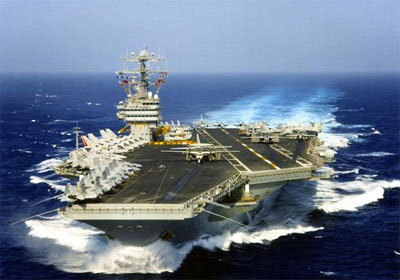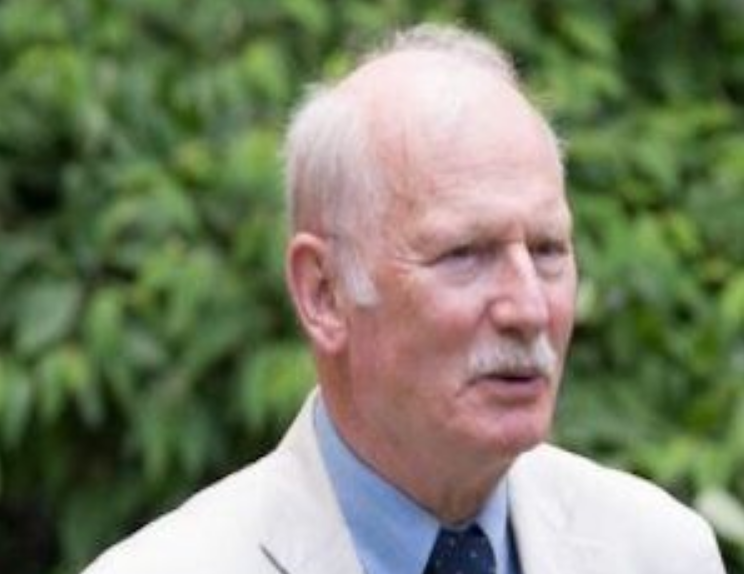A flash of lightning
By Uri Avnery
Night. Utter darkness. Heavy rain. Visibility close to nil.
And suddenly – a flash of lightning. For a fraction of a second, the landscape is lit up. For this split second, the terrain surrounding us can be seen. It is not the way it used to be.
Israeli government’s action against the Gaza aid flotilla was such a lightning flash.
Israelis normally live in darkness as far as seeing the world is concerned. But for that instant, the real landscape around us could be seen, and it looked frightening. Then the darkness settled down over us, Israel returned to its bubble, the world disappeared from view.
This split second was enough to reveal a dismal scene. On almost all fronts, the situation of Israel has worsened since the last flash of lightning.
The Gaza Freedom Flotilla and the attack on it did not create this landscape. It has been there since Israel’s present government was set up. But the deterioration did not start even then. It began a long time before.
The action of Ehud Barak & Co. only lit up the situation as it is now, and gave it yet another push in the wrong direction.
How does the new landscape look in the light of Barak’s barak? (“barak” means lightning in Hebrew.)
The list is headed by a fact that nobody seems to have noticed until now: the death of the Holocaust.
In all the tumult this affair has caused throughout the world, the Holocaust was not even mentioned. True, in Israel there were some who called Recep Tayyip Erdogan “a new Hitler”, and some Israel-haters talked about the “Nazi attack”, but the Holocaust has practically disappeared.
For two generations, Israel’s foreign policy used the Holocaust as its main instrument. The bad conscience of the world determined its attitude towards Israel. The (justified) guilt feelings — either for atrocities committed or for looking the other way — caused Europe and America to treat Israel differently than any other nation — from nuclear armaments to the settlements. All criticism of our governments’ actions was branded automatically as anti-Semitism and silenced.
But time does its work. New tragedies have blunted the world’s senses. For a new generation, the Holocaust is a thing of the remote past, a chapter of history. The sense of guilt has disappeared in all countries, except Germany.
The Israeli public did not notice this, because in Israel itself the Shoah is alive and present. Many Israelis are children or grandchildren of Holocaust survivors, and the Holocaust has been imprinted on their childhood. Moreover, a huge apparatus ensures that the Holocaust will not disappear from our memory, starting from kindergarten, through ceremonies and memorial days, to organized tours “there”.
Therefore, the Israeli public is shocked to see that the Holocaust has lost its power as a political instrument. Our most valuable weapon has become blunt.
The central pillar of our policy is our alliance with the United States. To use a phrase dear to Binyamin Netanyahu (in another context): it’s “the rock of our existence”.
For many years, this alliance has kept us safe from all trouble. We knew that we could always get from the U.S. all we needed: advanced arms to retain our superiority over all Arab armies combined, munitions in times of war, money for our economy, the veto on all UN Security Council resolutions against us, automatic support for all the actions of our successive governments. Every small and medium country in the world knew that in order to gain entrance to the palaces of Washington, the Israeli doorkeeper had to be bribed.
But during the last year, cracks have appeared in this pillar. Not the small scratches and chips of wear and tear, but cracks caused by shifts of the ground. The mutual aversion between Barack Obama and Binyamin Netanyahu is only one symptom of a much deeper problem.
The Chief of the Mossad told the Knesset last week: “For the U.S., we have ceased to be an asset and become a burden.”
This fact was put into incisive words by General David Petraeus, when he said that the ongoing Israeli-Palestinian conflict is endangering the lives of American soldiers in Iraq and Afghanistan. The later soothing messages did not erase the significance of this warning. (When Petraeus fainted this week at a Senate hearing, some religious Jews viewed it as divine punishment.)
It is not only the Israeli-American relationship that has undergone a fateful change, but the standing of the U.S. itself is changing for the worse, a bad omen indeed for the future of Israeli policy.
The world is changing, slowly and quietly. The U.S. is still by far the most powerful country, but it is no longer the almighty superpower it had been since 1989. China is flexing its muscles, countries like India and Brazil are getting stronger, countries like Turkey — yes, Turkey! — are beginning to play a role.
This is not a matter of one or two years, but anyone who is thinking about the future of Israel in ten, twenty years must understand that unless there is a basic change in our position, our position, too, will decline.
If our alliance with the U.S. is one central pillar of Israeli policy, the support of the vast majority of world Jewry is the second.
For 62 years, we could count on it with our eyes shut. Whatever we did — almost all the world’s Jews stood at attention and saluted. In fire and water, victory or defeat, glorious or dark chapters — the world’s Jews did support us, giving money, demonstrating, pressuring their governments. Without second thoughts, without criticism.
Not anymore. Quietly, almost silently, cracks have appeared in this pillar, too. Opinion polls show that most American Jewish young people are turning away from Israel. Not shifting their loyalty from the Israeli establishment to Israel’s liberal camp — but turning away from Israel altogether.
This will not be felt immediately either. AIPAC continues to strike fear into Washingtonian hearts, Congress will continue to dance to its tune. But when the new generation comes to man key positions, the support for Israel will erode, American politicians will stop crawling on their bellies and the U.S. administration will gradually change its relations with us.
In our immediate neighborhood, too, profound changes are underway, some of them beneath the surface. The flotilla incident has exposed them.
The influence of our allies is decreasing constantly. They are losing height, and an old-new power is on the rise: Turkey.
Hosni Mubarak is busy with his efforts to pass power to his son, Gamal. The Islamic opposition in Egypt is raising its head. Saudi money is trumped by the new attraction of Turkey. The Jordanian king is compelled to adapt himself. The axis of Turkey-Iran-Syria-Hezbollah-Hamas is the rising power, the axis of Egypt-Saudi Arabia-Jordan-Fatah is in decline.
But the most important change is the one that is taking place in international public opinion. Any derision of this reminds one of Stalin’s famous sneer (“How many divisions has the pope?”)
Recently, an Israeli TV station showed a fascinating film about the German and Scandinavian female volunteers who flooded Israel in the 50s and 60s to live and work (and sometimes marry) in the kibbutzim. Israel was then seen as a plucky little nation surrounded by … enemies, … risen from the ashes of the Holocaust to become a haven of freedom, equality and democracy, which found their most sublime expression in that unique creation, the kibbutz.
The present generation of idealistic youngsters from all over the world, male and female, who would once have volunteered for the kibbutzim, can now be found on the decks of the ships sailing for downtrodden, choked and starved Gaza, which touches the hearts of many young people. The pioneering Israeli David has turned into a brutish Israeli Goliath.
Even a genius of spin could not change this. For years, now, the world sees Israel every day on the TV screen and on the front pages in the image of heavily armed soldiers shooting at stone-throwing children, guns firing phosphorus shells into residential quarters, helicopters executing “targeted eliminations”, and now pirates attacking civilian ships on the open seas. Terrified women with wounded babies in their arms, men with amputated limbs, demolished homes. When one sees a hundred pictures like that for every picture that shows another Israel, Israel becomes a monster. The more so since the Israeli propaganda machine is successfully suppressing any news about the Israeli peace camp.
Many years ago, when I wanted to ridicule the addiction of our leaders to the use of force, I paraphrased a saying that reflects much of Jewish wisdom: “if force does not work, use brains.” In order to show how far we, the Israelis, are different from the Jews, I changed the words: “If force doesn’t work, use more force.”
I thought of it as a joke. But, as happens to many jokes in Israel, it has become reality. It is now the credo of many primitive Israelis, headed by Ehud Barak.
In practice, the security of a state depends on many factors, and military force is but one of them. In the long run, world public opinion is stronger. The pope has many divisions.
In many respects, Israel is still strong. But, as the sudden illumination of the flotilla affair has shown, time is not working in our favor. We should deepen our roots in the world and in the region — which means making peace with our neighbors — as long as we are as strong as we are now.
If force doesn’t work, more force will not necessarily work either.
If force doesn’t work, force doesn’t work. Period.
Uri Avnery, 86, is an Israeli writer and founder of the Gush Shalom peace movement.
(Source: Gush Shalom)
Photo: Demonstrators holding flags protest against Israeli attack on the Gaza Freedom Flotilla in Istanbul, Turkey, May 31, 2010. (Xinhua/AFP Photo)







